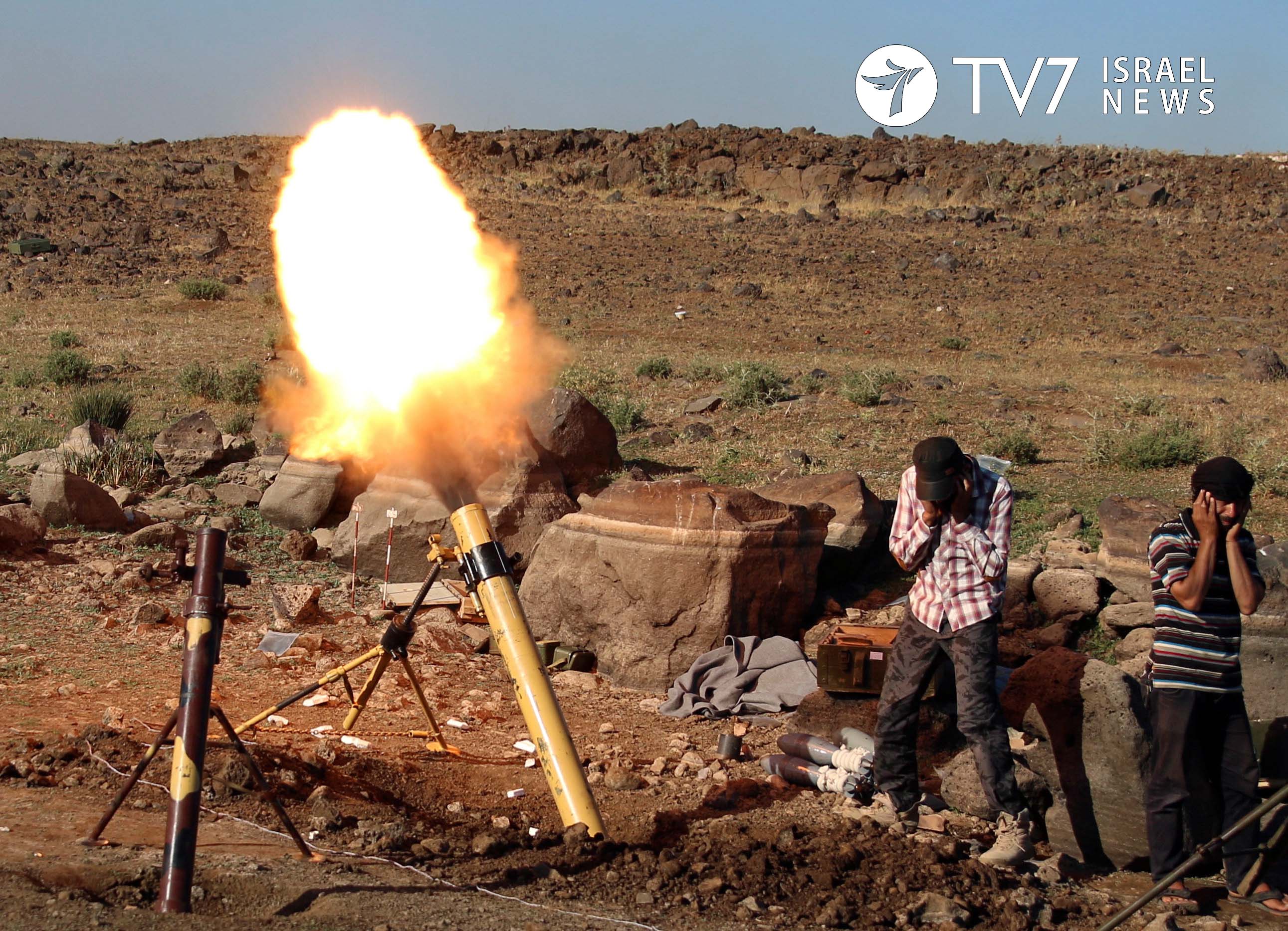Heavy clashes between the Syrian military and Rebels that included hardline Islamist factions were reported in the Quneitra province, located adjacent to the border with Israel. During the course of the clashes, 10 projectiles from inside Syria exploded on the Israeli side of the border. No injuries were reported, yet minor damage was caused to an agricultural field.
Even though the Israeli military described the shellfire into Israel as ‘errant fire’, it defined the incident as an “unacceptable breach” of the country’s sovereignty, and responded with air strikes on the positions the projectiles were launched from, as well as several Syrian military installations; emphasizing that the IDF views the Syrian regime of Bashar Assad as solely responsible for any attacks emanating from the war-torn-country.
Prime Minister Benjamin Netanyahu, during his weekly cabinet meeting, warned Israel’s enemies that the Jewish state will not tolerate any spillover from any of its fronts, while signaling Iran that it would respond with force to its attempts to establish itself militarily in close proximity to Israel.
“Last night, the Israeli army attacked Syrian military targets. This was a decisive response to mortar fire at our territory. Our policy is clear: We will not tolerate any spillover of any kind, not mortars, not rockets, or any fire trickle from any front. We will respond strongly to any attack on our territory or our citizens. In addition, we view with much severity Iran’s attempts to establish itself militarily in Syria as well as its attempts to equip Hezbollah with advanced weaponry via Syria and Lebanon,” said Netanyahu.
The General Command of the Syrian Army responded to Israel’s reprisal attacks and threats of additional spillovers from the war-torn-country, warning that Syria holds its “Israeli enemy responsible for the dangerous consequences of the recurrence of these operations.”
The Iranian Lebanese-proxy Hezbollah also warned Israel to consider its future actions in Syria, stressing that its future war with Syria or Lebanon could draw thousands of fighters from countries, including Iran, Iraq and Yemen.
“The Israeli enemy must know that if an Israeli war is launched on Syria or Lebanon, it is not known that the fighting will remain Lebanese-Israeli, or Syrian-Israeli. This doesn’t mean there are states that might intervene directly, but this could open the way for thousands, even hundreds of thousands of fighters from all over the Arab and Islamic world to participate.”
The comments by Hezbollah leader Hassan Nasrallah indicate that the Iranian-backed Shi’ite militias fighting in the various conflicts in the region have vowed to come to Hezbollah’s aid, if the rising tension with Israel would escalate to an ‘all-out war’, a conflict which Israel’s air force chief warned would see the Jewish state to use all of its strengths from the start, as opposed to previous wars that have significantly restrained Israel’s need to apply its full military capabilities.
